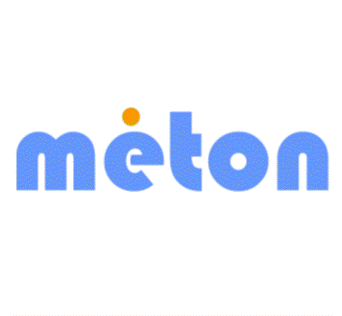PUBLICATIONS
Below, you can find publications to which METON (Funding Experts Athens) has contributed in the framework of contracts signed and implemented.


Methodology, Future Perspectives & Guidelines for Integration of Renewable Energies in Mediterranean Landscapes
Project "ENERSCAPES"
Programme "MED"
Co-Funded by the European Union
The growing use of Renewable Energy Sources (RES), unquestionably important for the reduction of greenhouse gas emissions, is leading to an increasing awareness about their compatibility with landscape and heritage preservation policies. It is a fact that the energy sector will keep increasing its influence on territory and landscape, not only with the plants themselves, but also with the infrastructures serving them (roads, distribution lines, etc.). ENERSCAPES aimed to investigate and evaluate impacts on distinct but recurring patterns of landscape all over the Mediterranean regions. The main output is the definition of a Local Action Plan for each pilot area, defined with a common methodology but also adapted to different contexts, able to support territories in developing RES accordingly to landscape values. The Final Guidelines are the result of a detailed activity of analysis and comparison of the different pilot-area experiences in the implementation of the project. The Guidelines aim at supporting other EU territories in planning RES energy development.
If you are interested, please ask for the publication through e-mail

Roadmap for Managers and Self-Assessment Guide
Project "2BPARKS"
Programme "MED"
Co-Funded by the European Union
During the latest years, it has been recognized on international scale that protected areas are only worth to create and maintain if they fulfill their stated aims, i.e. biodiversity conservation, preservation of landscapes and seascapes, enhancement of recreational value, development of environmental services and creation of social and cultural benefits. To fulfill these aims in parallel, protected areas need sound and effective management. Managers have to realize that to operate a protected area efficiently does not mean to have a phone to pick up, to produce one flyer each year and to organize excursions for students. PA management is a multi-dimensional task. If we realize that the total protected areas globally cover 10% of the world’s land surface, but also bear in mind that more than 30% of protected areas globally have been established within the decade 1991 – 2000, we will end up with the conclusion that the issue of sound management is definitely urgent, but also that “park management” is still at its early childhood.
If you are interested, please ask for the publication through e-mail

Good Practice Guide
Project "LakeAdmin"
Programme "Interreg IVC"
Co-Funded by the European Union
The project "Regional Administration of Lake Restoration Initiatives – LakeAdmin identified lakes as important elements in regional development policies of the participating areas. The project aimed at an exchange of good water management practices to support the implementation of the water framework directive in each of the partner regions and to support this with collection of lake restoration cases. 18 good practices have been identified by the project partner and used in regional or local plans for the advancement of lake restoration. Plans were produced in cooperation with regional or local authorities. The set of practices addressed many central subjects of lake restoration: procedures and tools for restoration planning, monitoring the status of lakes, reducing loads and impacts of pressures and wide restoration cases with complex needs for uses of a lake. The good practices include multi-criteria assessments in comparison with lake restoration initiatives, participation of stakeholders, education and training, reduction of nutrient loads, pressure mapping in regional planning of lake management, biomonitoring and more.
If you are interested, please ask for the publication through e-mail

How to Build an EcoGreenVillage based on Mild Home
Project "MILD HOME"
Programme "South East Europe"
Co-Funded by the European Union
The guide contains the main outcomes of the MILD HOME project, which has been funded under the Priority Axis 2 “Protection and Improvement of the Environment” of the South East Europe Programme 2007-2013. The project has been carried out by a consortium of 13 partners coming from seven EU Member States and one non-EU country. The partners are: UCV – Regional Association of Veneto’s Chambers of Commerce (IT); CARA Municipality of Castelnuovo Rangone (IT); ENERO – Centre for the Promotion of Clean and Efficient Energy in Romania (RO); CJCS – Caras-Severin County Council (RO); BCCI – Bulgarian Chamber of Commerce and Industry (BG); ELI – European Labour Institute (BG); SOF – Municipality of Sofia (BG); EEE – European Centre for Renewable Energy Güssing (A); SZE – Széchenyi István University (HU); BBI – Building Biology Institute Austria (A); RTHES – Region of Thessaly (GR); MSV – City-Municipality of Savski Venac in Belgrade (RS) and the EU Strategic Associated Partner RER – Region of Emilia-Romagna (IT).
If you are interested, please ask for the publication through e-mail
Final Guide/Brochure on Ceramics' and Crafts' Industries Increased Cooperation Interventions
Project "CERAMICA"
Programme "Interreg IVC"
Co-Funded by the European Union
Many European cities and regions can boast of deep-rooted cultural traditions in the field of ceramics and small crafts. Preserving cultural values and cultural heritage has since long been a priority area for the EU. However, besides preservation, cultural heritage is a major asset in economic terms for European regions: it generates jobs, household income and stimulates local economic development. Towns of ceramic and small crafts traditions, endowed with a rich artistic heritage, are nevertheless facing severe problems: globalisation creating fierce competition and ageing population of craftsmen, both leading to a continuous decline of the sector. Traditional ceramics is struggling to survive and more and more small workshops and art galleries are closing by the year. Preservation and valorisation of these traditions in the 21st century impose a serious challenge.Local economies rely on cultural tourism that also depends on the vitality of the ceramic and small crafts sector.
If you are interested, please ask for the publication through e-mail
